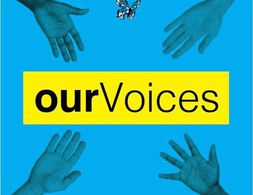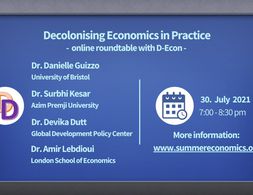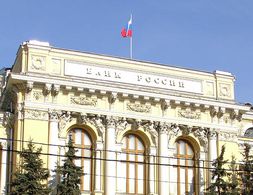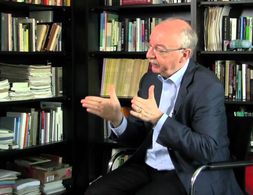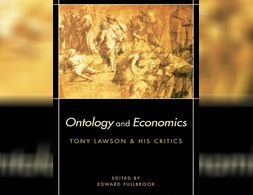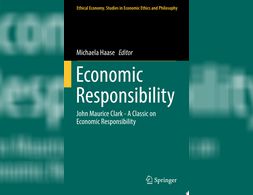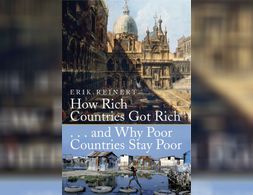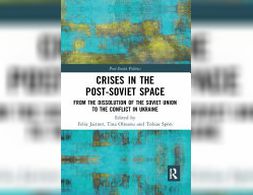✕
525 results
In this podcast, Laura Basu speaks with a range of expert academics and public speakers – such as Jayati Ghosh, Yanis Varoufakis, Walden Bello, and Ashish Kothari about how the rules of the global economy are fostering the inequality and underdevelopment we see today.
This study aims to provide insights on how the Social and Solidarity Economy (SSE) is contributing to the future of work.
This course will introduce key concepts, theories and methods from socioeconomics. The first part of the course, will deal with the main economic actors and how their interactions are governed. Markets are seen as sets of social institutions. Institutions shape how consumers, firms and other economic actors behave. While it is difficult to understand how novelty emerges, we can study the conditions that are conducive to innovation. We will review how economic performance, social progress and human wellbeing are measured and what progress has been made. In the second part of the course, we will study a specific macroeconomic model that accounts for biophysical boundaries and inequality.
This part is devoted to simulation experiments based on the simulation model developed in part I from the value theoretic reconstruction of the main parts of Marx s critique of Political Economy After introducing the main parameters and the range of their variation Section 1 a singular run as well …
Recent events such as the Black Lives Matter protests the the murder of George Floyd in Minneapolis US and the toppling of the statue of Edward Colston in Bristol UK have exposed existing racism colonialism and sexism in our society and in Economics While calls to improve diversity in Economics …
Marx Reloaded is a cultural documentary that examines the relevance of German socialist and philosopher Karl Marx s ideas for understanding the global economic and financial crisis of 2008 09 The crisis triggered the deepest global recession in 70 years and prompted the US government to spend more than 1 …
Yao Graham, coordinator of Third World Network- Africa, reflects on lessons learned from past Economic Partnership Agreements (EPAs), specifically as they relate to the Post-Cotonou Agreement.
Aim of this intensive workshop is to understand macroeconomic workings of climate change as as the background of sustainable finance; to analyse financial assets with ESG (Environmental, Social and Governance) criteria attached to them and their markets and important institutional players; to develop a critical perspective on the current setup of sustainable finance; and to synthesise this knowledge by applying it on in-depth case studies.
The world has seen the emergence of a rather different system of international lender of last resort organized as a network of central bank liquidity swap lines largely limited to the core countries of the Global North In this system central banks swap their own currency for dollars which they …
The article discusses whether the turning point in EU's Russia policy with sanctions aimed directly at Putin's war chest of foreign reserves will change the landscape of countries' foreign assets.
Wheat and oil prices were already rising before the Russian invasion so what might be the effect for people in low income countries of a war far away that may have a secondary impact much closer to home In this short video Rabah Arezki Chief Economist Vice President African Development …
In this interview Gerd Gigerenzer place bounded rationality into the context of a larger development in thinking about what rationality is He touches on unbounded rationality which remains overrepresented and popular in neoclassical economics he explains different interpretations of bounded rationality and concludes with an ecological interpretation of rationality He …
What the heck is the yield curve? And why is it considered a powerful predictor of economic crisis? Here you'll get to know.
Information and skills required to make more sustainable choices every day.
How and by whom are International Labour Standards set? How are they supervised, and how can workers’ organisations use the ILO supervisory mechanisms? What are the key principles of Freedom of Association, the right to strike and Collective Bargaining?
Explore the pressing topic of globalisation and how it affects economics, politics and society with this online course.
Aim of this intensive workshop is 1.) to introduce the participants to the macroeconomic workings of the climate crisis as the background of sustainable finance; 2.) to introduce financial assets with ESG (Environmental, Social and Governance) criteria attached to them and their markets and important institutional players; 3.) to provide a critical perspective on the current setup of sustainable finance; 4.) and to work on in-depth case studies illustrating the workings on ESG-finance markets, its emitters and traders as well as their macroeconomic implications.
This course seeks to interpret capitalism using ideas from biological evolution. The lectures are foundational on neoclassical economics and economist, as well as their roles in the proliferation of capitalist ideology. However, it is less concerned with the ultimate judgment of capitalism than with the ways it can be shaped to fit more specific objectives.
This course provides a simple introduction to problems that social scientists are working on (e.g. racial disparities, inequality and climate change) in a manner that does not require any prior background in Economics or Statistics.
Tony Lawson has become a major figure of intellectual controversy on the back of juxtaposing two relatively simple and seemingly innocuous ideas. He has argued firstly that success in science depends on finding and using methods, including modes of reasoning, appropriate to the nature of the phenomena being studied, and also that there are important differences between the nature of the objects of study of natural sciences and those of social science.
John Maurice Clark’s article “The Changing Basis of Economic Responsibility,“ published in the Journal of Political Economy, is the topical starting point for all scholars interested in economic responsibility and responsible economic action.
Challenging the Mainstream in the Twentieth Century Economics is a contested academic discipline between neoclassical economics and a collection of alternative approaches such as Marxism radical economics Institutional economics Post Keynesian economics and others that can collectively be called heterodox economics Because of the dominance of neoclassical economics the existence …
That’s why it is time, says renegade economist Kate Raworth, to revise our economic thinking for the 21st century. In Doughnut Economics, she sets out seven key ways to fundamentally reframe our understanding of what economics is and does.
In this refreshingly revisionist history, Erik Reinert shows how rich countries developed through a combination of government intervention, protectionism, and strategic investment, rather than through free trade.
Since the beginning of the twenty-first century, there has been an unprecedented move towards 'rethinking economics' due to the damages generated by the global financial crisis that burst in 2007-2008. Almost a decade after this crisis, policy is still unable to provide all citizens greater wellbeing or at least an encouraging economic future.
The recent financial meltdown and the resulting global recession have rekindled debates regarding the nature of contemporary capitalism.
In the late nineteenth and early twentieth centuries, Bombay was beset by crises such as famine and plague. Yet, rather than halting the flow of capital, these crises served to secure it. In colonial Bombay, capitalists and governors, Indian and British alike, used moments of crisis to justify interventions that delimited the city as a distinct object and progressively excluded laborers and migrants from it.
A comprehensive textbook on contemporary Global Political Economy and its historical evolution providing a broad-ranging and even-handed introduction to the subject by covering traditional elements (such as trade and finance) while also analysing issues such as gender, environment and labour.
Homo sapiens is now evolving into post economy The New Economy must manage scarcity and affluence a dual problem that is not integrated into the main classical economic theories There will be an important shock between opulence described by the economist John Kenneth Galbraith in The Affluent Society and scarcity …
In this new book Smith returns to Solow s classic productivity paradox which essentially states that we can see automation everywhere like the spheres of leisure sociality and politics but not in the productivity statistics He examines why labor saving automation in the service age in the Global North has …
This edited volume put together by Jimi Adesina based on the proceedings of the Social Policy in African Conference in 2017 provides an overview of social policy in varied country contexts and fields especially in light of decades of the reduction in size and hollowing out of the content of …
From the Dissolution of the Soviet Union to the Conflict in Ukraine The breakup of the Soviet Union led to the creation of new states and territorial conflicts of different levels of intensity Scrutinising the post Soviet period this volume offers explanations for both the frequency and the intensity of …
We use cookies on our website. Click on Accept to help us to make Exploring Economics constantly better!

